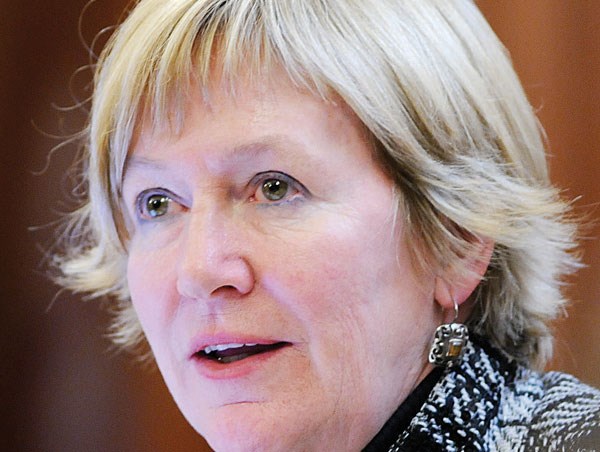The Justice Ministry is closing a loophole in the way it does criminal record checks for volunteers.
For years, volunteer groups in B.C. have criticized the ministry’s method of vetting people who work with children and vulnerable adults. The ministry’s record checks aren’t as comprehensive as those done by police, they say, meaning pedophiles and other undesirables could slip through the net.
But Justice Minister Suzanne Anton says that beginning in November, the province will reinstate so-called vulnerable-sector checks — reviews that have red-flagged more than 300 sex offenders elsewhere in Canada since 2010.
Other issues remain, but Volunteer B.C. president Lawrie Portigal says resolving this one is a huge step. “It was the biggest hole that we saw in the process,” he said Friday.
Anton has a Vancouver news conference today at which she is, with soccer-playing kids as a backdrop, scheduled to reaffirm the ministry’s intention to drop the $20 fee it charges when doing criminal record checks for volunteers.
That part isn’t a big deal for Victorians, where police departments already do such checks for free. What Volunteer Victoria and other umbrella groups for volunteer-driven agencies are more concerned about is the thoroughness of the reviews themselves.
B.C. law says people in publicly funded organizations who work with children and vulnerable adults must be screened to see if they pose a risk of physical, sexual or — in the case of adults — financial abuse. The rules cover everyone from teachers to hospital employees and daycare workers, as well as certain volunteers. Employers must have the ministry do their checks, but volunteer groups have the option of asking the police to do them instead.
Umbrella groups including Volunteer Victoria have urged members to choose the police, not the ministry, in part because the police include a vulnerable-sector screen designed to detect the 15,000 convicted Canadian sex offenders who have received pardons and whose identities will not show up in a simple review of criminal records.
The vulnerable-sector checks are done by the RCMP, which for the past three years has depended on the expanded use of fingerprinting to catch pardoned sex offenders who have changed their names to avoid detection. Last September, the Mounties said those fingerprint checks had resulted in 312 people being red-flagged across Canada since July 1, 2010. That total doesn’t include those applicants who abandoned the process after learning they would have to submit fingerprints.
The problem is that these checks were time-consuming, sometimes taking several weeks to complete. After the RCMP expanded its use of fingerprints, the proportion of applicants requiring fingerprinting jumped from one in 3,750 to one in 10. Non-profit groups complained the red tape was driving away volunteers.
So the Justice Ministry — though not the police — suspended the fingerprinting requirement. The ministry reasoned that B.C. already had safeguards, being one of two provinces to require fingerprinting when someone applies for a legal name change, meaning his criminal record sticks with him when he assumes a new identity. Volunteer groups replied that that still allowed newcomers to B.C. to slip under the radar.
In any case, Portigal says advances in digital technology have largely done away with the delays associated with fingerprinting.
There still remains a gap in the way the Justice Ministry and police do simple criminal record searches. The ministry relies mainly on a B.C. Corrections database and another operated by the Canadian Police Information Centre — but the RCMP acknowledged a year ago that it had a backlog of 433,000 fingerprint files awaiting entry in CPIC, meaning applicants with criminal histories could escape unnoticed. That’s why police routinely comb through other sources such as PRIME — the information-sharing system used by all B.C. police forces — whose records are more up to date.
PRIME also shows if someone has had “negative contact” with police or is under investigation for a crime. That’s getting into gooey territory from a privacy perspective, which has divided the volunteer sector, Portigal says.
The Justice Ministry reviews will now, if criminal records warrant it, include looking at “adverse police contact,” even if no charges were laid.
“The feedback we’ve received from many volunteer agencies is that they’re satisfied with and in favour of the changes we have made to the legislation,” Anton says. “It balances privacy while maintaining safety for the vulnerable sector.”
Not only will the revamped process be free to volunteer groups, but it will mean consistent, expert risk assessment across B.C., she said.



